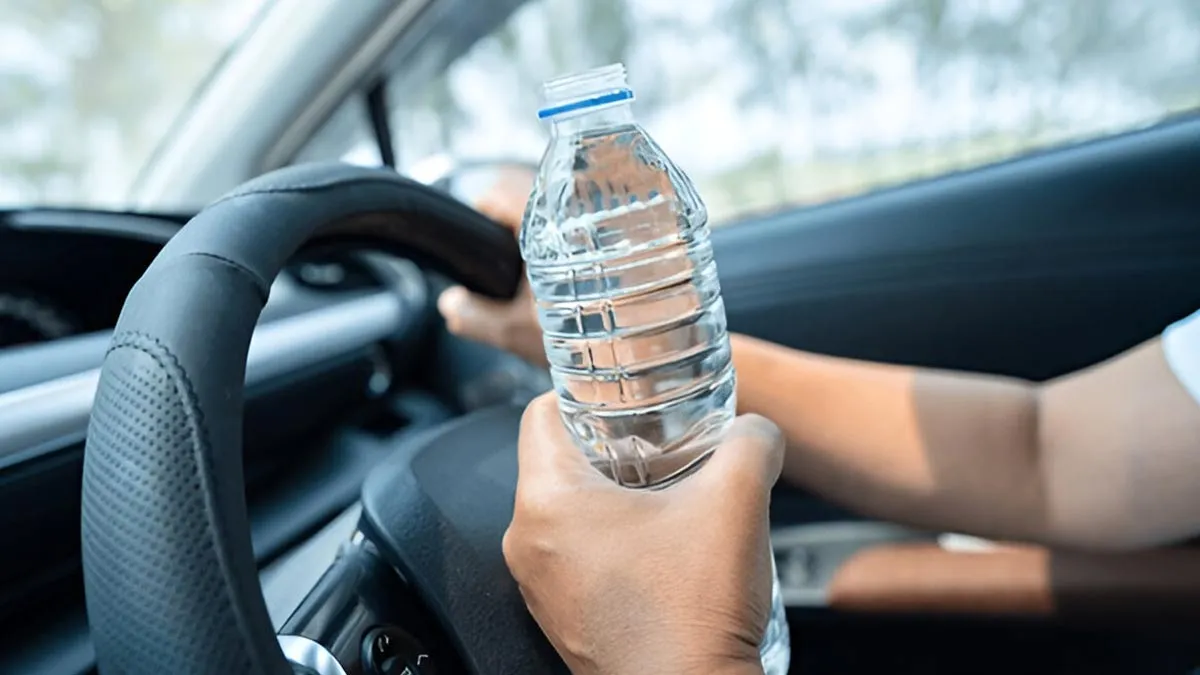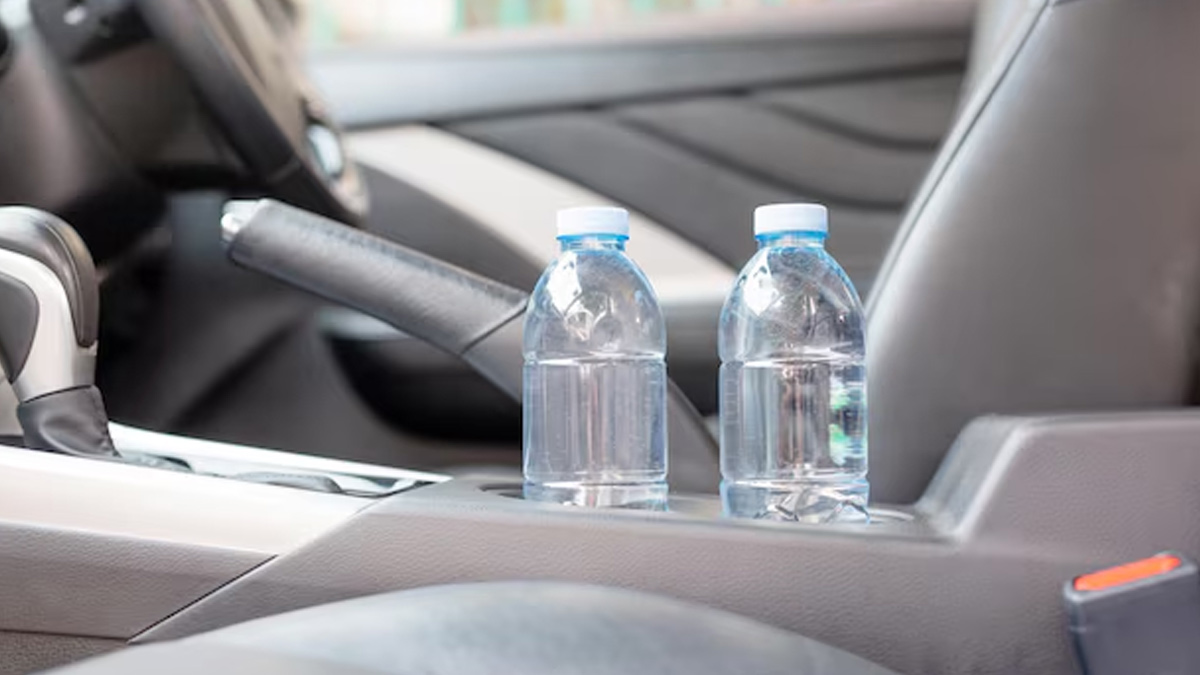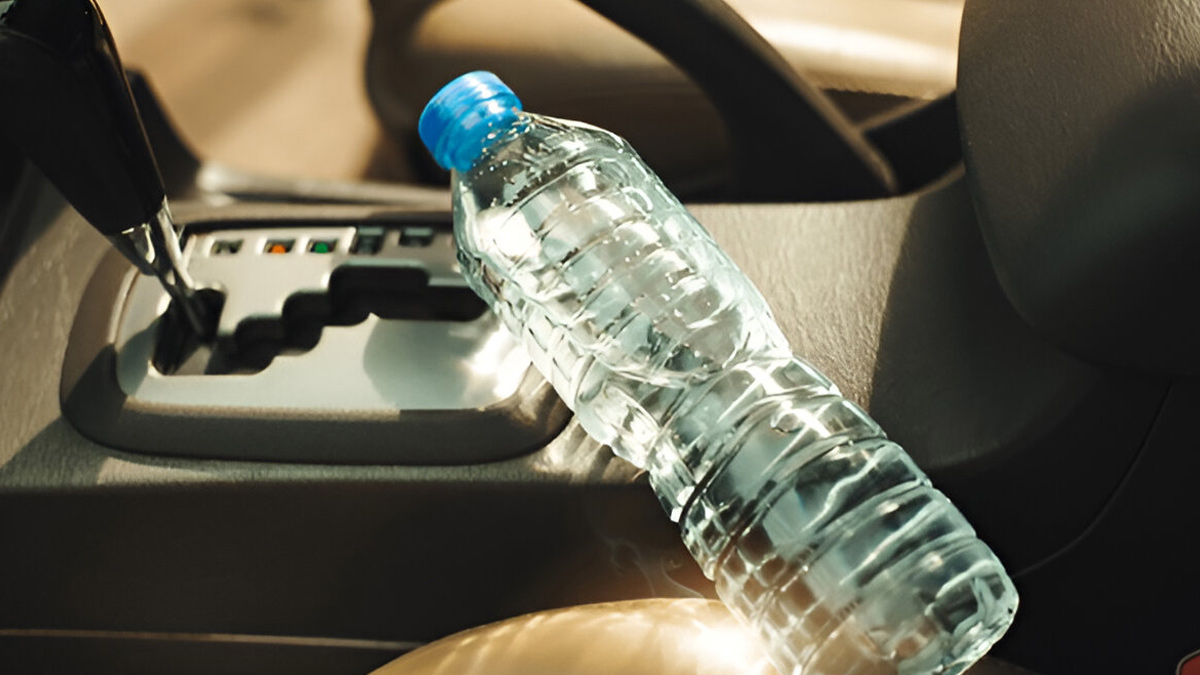
We've all done it: you get into your vehicle on a hot day, notice a half-finished water bottle bouncing around the seat, and assume, "It's water, what's the big deal?" However, according to experts, leaving plastic water bottles in a hot vehicle can change what's in that bottle in ways you might not realise. From chemical leaching to bacterial proliferation, here's what happens when you take a swig out of that abandoned bottle.
Table of Content:-
Dangers Of Drinking Water From A Plastic Bottle Left In A Hot Car
Heat and Plastic Don’t Mix

"Most disposable plastic water bottles are composed of Polyethylene Terephthalate (PET). PET is safe to use for storing drinks under regular circumstances. However, when subjected to prolonged heat, such as within a parked automobile, where temperatures can reach above 60°C (140°F), the plastic starts to degrade," said Dr Siri M Kamath, Consultant Internal Medicine, Gleneagles BGS Hospital, Kengeri, Bengaluru.
High temperatures can cause chemicals, including antimony and bisphenol A (BPA, in some plastics) to leach into the water. While the levels detected are usually small and below regulatory limits, repeated exposure may raise concerns. BPA, for example, has been linked to hormonal disruption, while antimony exposure has been tied to stomach irritation and, in extreme cases, more serious health risks.
On an 80-degree day, the temperature inside a parked car can climb to 110 degrees in under thirty minutes. Such a rapid increase is sufficient to accelerate the migration of BPA in bottled water, as noted by the International Journal of Environmental Research and Public Health.
Hence, while taking a sip occasionally might not cause immediate harm, making it a habit could mean long-term exposure to substances your body doesn’t need.
Also Read: Does Drinking Water from Plastic Bottles Weaken Your Bones? Here’s What Science Says
Bacterial Accumulation in a Bottle
"Chemicals aren’t the only problem. Think about how you drink water from a bottle: you take a sip, the bottle touches your mouth, and some saliva inevitably mixes back in. If that bottle then sits in a hot car, it creates the perfect breeding ground for bacteria," said Dr Vandana Verma, BPT/MIAP/DNHE/PG Dietitics.
Warmth, moisture, and nutrients (from trace amounts of backwash) are exactly what bacteria need to multiply. Reused water bottles, especially when not cleaned properly, can harbor E. coli and other bacteria at levels comparable to a pet’s water bowl. According to a study published in the Journal of Pharmacy & BioAllied Sciences, reusable water bottles often contain more microbes than toilet seats.
Taste and Smell Changes

Even before health risks come into play, you may notice something off right away. Water that’s been sitting in a hot plastic bottle often tastes stale, 'plasticky,' or even slightly sweet. This isn’t just in your head; it’s a result of Volatile Organic Compounds (VOCs) leaching out from the heated plastic.
While the taste itself isn’t necessarily harmful in small doses, it’s a sign that your water has been chemically altered. If your senses tell you the water tastes strange, that’s usually a good enough reason not to drink it.
Also Read: Is Glass Bottle Healthier Than a Plastic One? Here Is What an Expert Says
Is It Dangerous Every Time?
"The short answer is: probably not. Accidentally taking a sip from a bottle left in your car once or twice is unlikely to cause serious harm. The levels of chemicals that leach into water typically remain below toxic thresholds, and your body can process small exposures," said Dr Kamath.
"The problem is with repeated exposure. If sipping from hot bottles is the norm, you might be subjecting your body to ongoing, unnecessary exposure to endocrine-disrupting chemicals and bacteria. That can add up over months and years, increasing health risk," added Dr Verma.
Safer Hydrating Alternatives
Instead of risking it, here are some better hydration habits for hot days:

- Use stainless steel or glass bottles. They're heat-resistant, they can be reused, and they don't leach harmful chemicals.
- Don’t leave bottles in the car. Take your drink with you or store extras in a cooler bag.
- If you must keep water in the car, use insulated bottles and keep them out of direct sunlight.
- Wash reusable bottles daily. Even safe materials can harbor bacteria if not cleaned properly.
Also watch this video
How we keep this article up to date:
We work with experts and keep a close eye on the latest in health and wellness. Whenever there is a new research or helpful information, we update our articles with accurate and useful advice.
Current Version